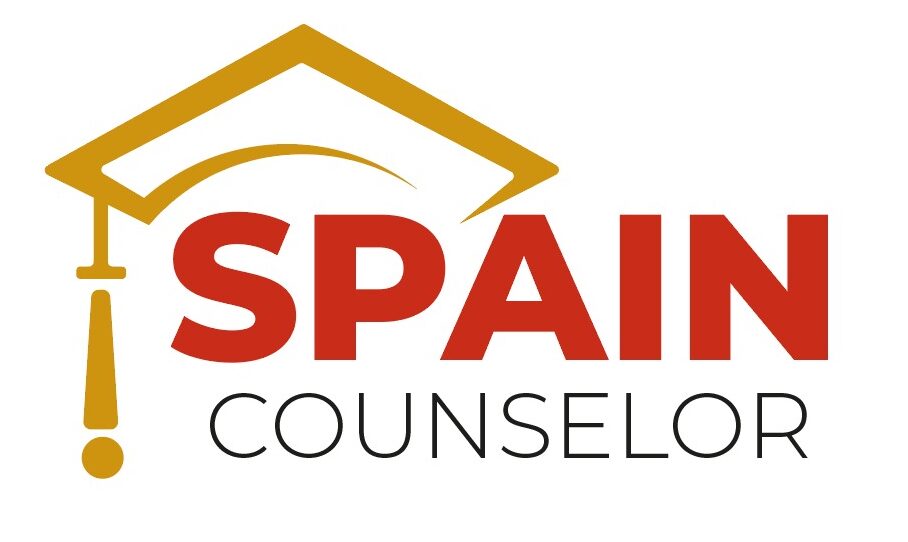We guide your UNEDasiss accreditation and registration for the tests that are required to study in Spain
UNEDasiss is a service that was created by the National Distance Education University (UNED in Spanish and Spain’s largest public university) to facilitate the admission process for students coming from different international school systems to continue their studies at Spanish universities.
UNEDasiss accredits previously obtained diplomas and will administer the admission exams that are required to start a specific degree.
Spain Counselor is an accredited partner of UNED and is authorized to manage the admission process for international students that want to study their undergraduate degree at Spanish universities.
MISSION
- Facilitate enrolment at Spanish universities for students from foreign educational systems by issuing accreditations and conducting specific competency tests.
- Fostering the internationalization of the Spanish Higher Education system by providing universities with a homogenous and systematic way of assessing not only academic records but also the skills and competencies obtained in foreign educational systems.

Admission Process for Undergraduate students in Spain
This practical video will explain the process of starting your undergraduate degree in Spain.
Admission Criteria
The admission criteria are the prerequisites needed to enter different undergraduate degrees at Spanish universities. These criteria differ per university and per program. Necessary documents can be the diploma, transcripts, and applicable admission tests. Deadlines and the cut-off grades depend on the program or university concerned.
Admission criteria about University
UNEDassis Accreditation
The digital certificate that is needed to apply to most universities in Spain. Once the student has been granted this accreditation, universities can access it via UNEDasiss’s digital platform.
Please note that not all universities accept this UNEDAssis accreditation as admission requirements or for specific studies.
Provisional Accreditation
This document is issued by UNEDasiss to students who handed in documents that were not official or definite yet. This happens mostly in 2 cases:
• Students who are in the process of having their high school education certifications in the process of accreditation (referred to often as the homologation process).
• Students from the United Kingdom and Irish educational systems who apply with their predicted grades.
Admission Score for Spanish Universities - Cut-of mark
This is one of the features included in the accreditation. The admission score is used by Spanish universities to determine if a student can be selected for admission. This score is a mark ranging from 5 to 10 and is used for the cut-off marks (minimum grade needed to enter)
Cut-off mark:
This is the minimum grade to be admitted into a specific program. They differ per program and can provide guidance to see if your application will be successful. They are published each year and students can find previous cut-off marks as a reference. This way they can see what admission scores are required for a certain program and can assess if the student has a chance to be admissible. Your admission score is determined by the universities and is based on their admission criteria, but also your UNEDasiss admission score, Specific Competency Test scores, accredited subjects taken in high school etc.
Registration to the PCE (Specific Competency Tests - PCE in Spanish)
UNED administers the PCE tests for students living outside of Spain to ensure that students can apply for admission at public universities in Spain. The PCE tests students’ competences and prior knowledge that is needed for a student to graduate high school. The student will have to select the subjects depending on the program and university concerned, and the previous subjects taken at high school level.
Important dates: https://unedasiss.uned.es/fechas_clave
Subjects offered: https://unedasiss.uned.es/oferta_asignaturas
Students graduating from European high schools or other internationally recognized degrees (like IB) are exempted from the PCE requirements. In case you have any questions or want to know if you need to take a PCE, please contact us.
Recognition of subjects
Students that graduate with EU high school curriculums or other diplomas that have been recognized by a reciprocal agreement (such as IB) and are at the same level of the Spanish secondary education system, can get their subjects recognized. Only subjects that are offered as PCE can be recognized. Ask us for more information.
UNEDasiss High School Profiles
In Spain, students follow certain subjects as part of a profile or track. These profiles consist of subjects needed to pass to graduate with a certain profile (called modalidad). Depending on the degree, a university will look for the subjects that are equal to what Spanish high school students took. These subjects are the subjects or PCE subjects tests that are needed to be able to apply for a certain undergraduate degree.
UNEDasiss Language Accreditation
This permits international students to accredit their necessary language requirements at some universities and participate in the undergraduate admission process for a certain degree.
These can only be accredited if the concerned entities, languages and levels of education are recognized by the Spanish Association of Language Centers in Higher Education (ACLES in Spanish).
Homologation of high school diploma by the Spanish Ministry of Education and Vocational Training
The homologation process is a necessary step for students who graduate with diplomas from curriculums outside the European Union, and diplomas that have not been reciprocally recognized. The purpose of this process is to accredit and to recognize students’ diplomas as equivalent to Spanish high school diplomas. Students can start this process after graduating high school. The requirements of this homologation process are established by the responsible ministry.
Private Universities. Institutional Admission Test
Private universities have their own institutional admission tests. These admission tests can sometimes replace or complement specific language and or competency tests required by universities. Sometimes however, for some scholarships or specific programs, students will have to pass a provisional accreditation or conversion to the Spanish grading system. In general, these assessments can be taken online and are hosted directly by the university or a partner.










